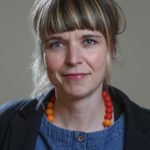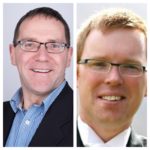News
RTÉ Brainstorm – How can we get more people to get booster shots?
Whitaker Institute member Dr Gerry Molloy, co-leader of the Health and Well-Being Cluster, has written a new piece for RTÉ Brainstorm. The article looks at ways to motivate people to take the booster vaccine. How can we get more people to get booster shots? Analysis: Here are 6 useful ways to motivate and enable people… | Read on »
Whitaker Webinars – Algorithms, Big Data and Artificial Intelligence in the Irish Legal Services Market
On 26 January, the Whitaker Institute was delighted to host Algorithms, Big Data and Artificial Intelligence in the Irish Legal Services Market by Dr Rónán Kennedy as part of the Whitaker Webinars series The webinar examined the issues raised by the rapid development of software for legal services, commonly known as ‘lawtech’. This could reduce legal costs… | Read on »
Examining the spatial distribution of marine employment
In order to examine the spatial distribution of marine industry employment, the study makes use of an existing spatial microsimulation model for the general Irish population; the SMILE (Spatial Microsimulation Model of the Irish Local Economy) model. SMILE is a static spatial microsimulation model designed to simulate regional welfare, income, and labour distributions in Ireland… | Read on »
The Irish Times – A top tip for hospitality employers: treat your staff as well as you can
Whitaker Institute member Dr Deirdre Curran, of the Work, Organizations and Society cluster, has been featured in a recent article from the Irish Times. The piece looks at Dr Curran’s research which found that many employees in the hospitality sector do not get to keep the tips they earn. Read more here.
The role of economic valuation and appraisal in marine policy making
There is now high-level recognition that the UN Sustainable Development Goals can only be achieved if the decline of ecosystems and biodiversity can be halted and reversed. This will require effective control of ongoing pressures, meaningful protection and enforcement of protected areas, and significant investments in ecosystem restoration. This research explores the possible use of… | Read on »
Older women in rural areas ‘not motivated by money to work’
Whitaker Institute member Dr Alison Herbert’s research has been featured in a recent article from the Irish Independent. Dr Herbert’s research found that women in their mid-40s to 60s living in rural Ireland are not motivated by money to continue working into older age, but instead by their life purpose and for social connection. Click here to… | Read on »
Used Car Prices
Used car prices have risen 56 per cent on average over the last two years, and rose by an average of 7.7 per cent over the last three months of 2021, according to a report authored by Whitaker Institute member Dr Tom Gillespie. Read more from The Irish Times, RTÉ News, Breakingnews.ie, Tech Register UK,… | Read on »
RTÉ Brainstorm – What’s stopping Irish farmers implementing climate action changes?
Whitaker Institute member Dr Doris Laepple, of the Environment, Development and Sustainability Cluster, has written a new article for RTÉ Brainstorm. The piece looks at the challenges for farmers in reducing agricultural emissions. What’s stopping Irish farmers implementing climate action changes? Analysis: a number of behavioural barriers provide a challenge for farmers in terms of… | Read on »
Local Authority Times – After Lockdown
Whitaker Institute members Dr Gerard Turley and Mr Stephen McNena, of the Performance Management cluster, have written a new article for the Local Authority Times winter edition. The piece looks at the local economy post lockdown and local authority finances. The article is available to read here (pg. 2).
Why older rural women in Ireland want to work: it’s not all about the money
Whitaker Institute member Dr Alison Herbert’s recent Policy Brief Why older rural women in Ireland want to work: it’s not all about the money which found that women in their mid-40s to 60s living in rural Ireland are not motivated by money to continue working into older age, but instead by their life purpose and for social connection,… | Read on »










